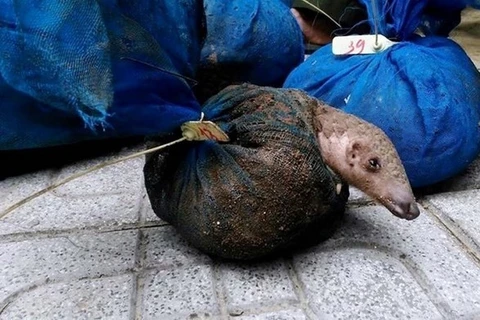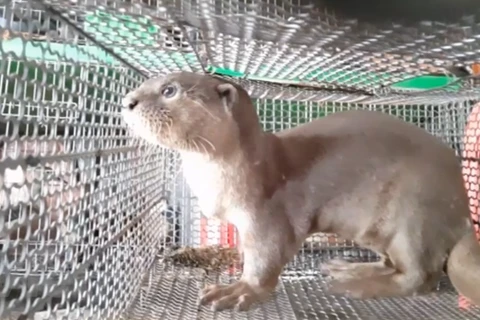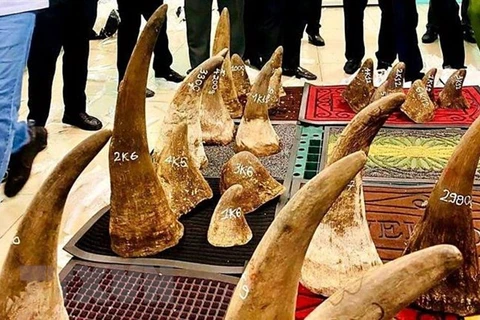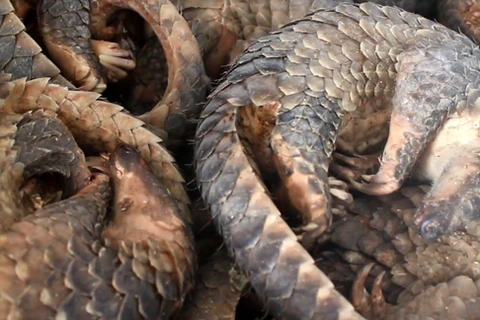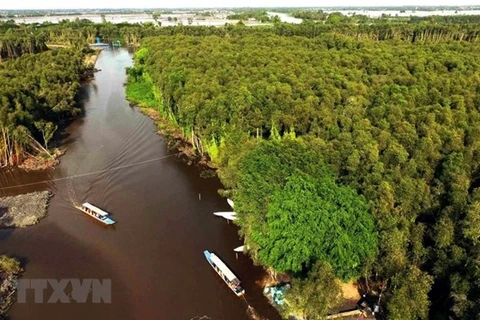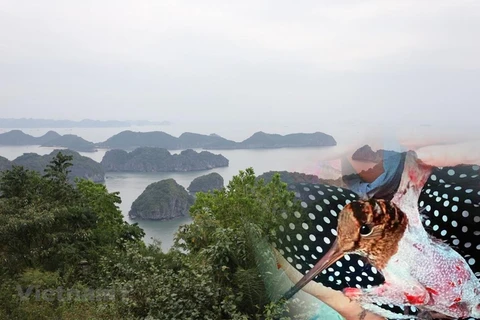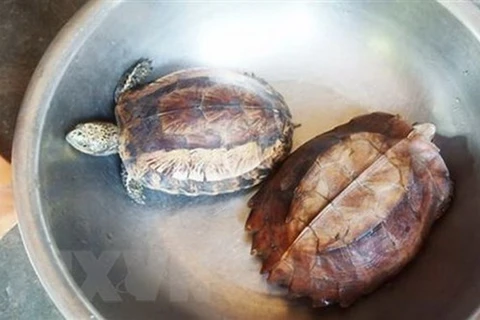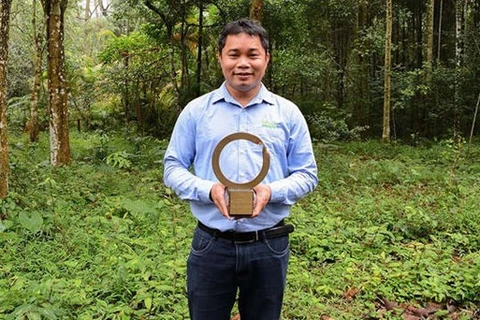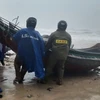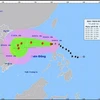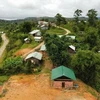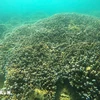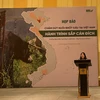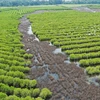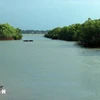 The otter, an endangered animal, is caged and sold at Thanh Hoa market in Long An province in March last year. (Photo: VNA)
The otter, an endangered animal, is caged and sold at Thanh Hoa market in Long An province in March last year. (Photo: VNA) Hanoi (VNA) – The illicit wildlife trade has not declined in Vietnam despite efforts of the government and counterparts in combating this endemic problem, according to a report by the People and Nature Reconciliation (PanNature), a non-profit organisation.
The report, which was released on June 18, is entitled “In the Maze: An Outlook of Illegal Wildlife Trade before and during COVID-19 Pandemic in Vietnam.”
It based on a survey carried out across 20 provinces and cities nationwide in 2019-20, targeting areas selling ivory, tiger, turtles, and wild birds.
According to the report, 27 out of 31 areas surveyed were found with ivory on sale. In addition, several markets in the Mekong Delta were actively selling turtles, birds, and other wildlife, including endangered species.
Trinh Le Nguyen, Executive Director of PanNature, said most emerging diseases originated from the transmission of pathogenic agents from animals to humans.
“The illegal trade, transport, and consumption of wildlife increase the interface between humans and animals, which poses the risks of spreading dangerous viruses.
“Vietnam has managed to prevent the spread of COVID-19 effectively. We hope that the Vietnamese government continues to strictly control illegal wildlife trade, specially permanently close all illegal wildlife trade locations and markets to reduce the risks of future zoonotic diseases,” Nguyen said.
In response to the call for stricter regulations on wildlife trade from nature conservation organisations to prevent future pandemics, on July 23, 2020, the Prime Minister issued Directive 29/CT-TTg on urgent measures to tighten management of wildlife. They include suspending wildlife imports, strengthening the enforcement of laws, and the strict monitoring of wildlife farming activities at local level.
However, the survey conducted by PanNature showed that no positive changes have been reported in the trade of wildlife products in many localities.
Several wildlife markets are still open and even selling endangered and protected species. Ivory trading is still prevalent in many cities and provinces. Wildlife farming is not strictly controlled as required and potentially posing many risks of infectious diseases, it said.
The report also put forward measures to minimise the risk of diseases originating from animals, including shutting down all illegal wildlife markets and tightening control of wildlife farms.
It was necessary to compile a list of wild animals allowed for private keeping, intensify control of wildlife-related advertising on the mass media and e-commerce platforms, and promoting communications on wildlife trafficking prevention, it said.
According to the Biodiversity Conservation Agency, Vietnam has imposed tougher measures against violators of wildlife and biodiversity conservation rules.
Wildlife-related crimes are considered serious, with convicted criminals now facing higher penalties and longer prison sentences in accordance with amendments to the 2015 Penal Code (revised in 2017). Violators may face up to 15 years in prison and fines of up to 15 billion VND (650,000 USD), with penalties rising in line with the quantity of wildlife trafficked.
Vietnam is among the signatories to the Convention on Biological Diversity, the Convention on International Trade in Endangered Species of Wild Fauna and Flora, the 1989 Convention on Wetlands of International Importance, and the UN Convention to Combat Desertification. The country has also stepped up bilateral and multilateral cooperation on wildlife conservation, for example signing an agreement with South Africa in 2012 to put an end to the illegal trade of rhinoceros horn.
Between 2015 and 2020, about 73 percent of wildlife trafficking cases were brought to trial. The 2015 Penal Code resulted in an increase in average prison sentences for wildlife crime in subsequent years, to 5.29 years in 2018 and 4.49 years in the first half of 2020 compared to just 1.25 years in 2017./.

